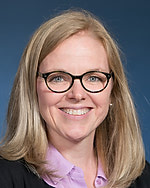
Caring for Children in Foster Care: Navigating Support Systems
Activity description
The goal of the foster care system is to promote the well-being of children and adolescents by providing for their health, safety, stability and permanency. Nearly 75 percent of children are placed in foster or kinship care because of abuse and/or neglect by parents due to substance abuse, addiction, extreme poverty, mental illness, homelessness or transience, domestic violence and criminal activity. These children present with behavioral problems well above their peers. For children who have suffered severe abuse and neglect, foster care is an opportunity for them to heal and benefit from the resources provided to them. Yet there are many barriers to providing high-quality comprehensive health care services to children and adolescents whose lives are already characterized by transience and uncertainty.
Children in foster care often have an unavailable or incomplete health and medication history. It can also be difficult determining who has the authority to consent for health care and with whom health care information should be shared. After participating in this activity, health care professionals (HCPs) will have a better understanding of how to navigate the child welfare system and advocate for coordinated care; be able to identify reasons children come into care and how their past experiences may present as physical or behavioral issues; and see how managed care organizations (MCOs) are able to facilitate better care coordination for this population.
Provided by
This activity is provided by OptumHealth Education.
Commercial support
This activity is supported by Optum Behavioral Health.
Required hardware/software
To view this activity, you will need Internet Explorer 7.0+ or Firefox 3.0+ with Windows Media Player 9+, RealPlayer 12+ or Adobe Flash Player 9+. Be sure to disable any pop-up blocking software prior to beginning this activity.
Target Audience
This activity is designed to meet the educational needs of case managers, counselors, nurses, nurse practitioners, pharmacists, pharmacy technicians, PAs, physicians, psychologists, social workers, therapists and other HCPs who care for children within the foster care system.
Learning Objectives
At the end of this educational activity, participants should be able to:
- Identify reasons children are placed into foster care and describe how these circumstances may present as physical or behavioral problems.
- Describe the impact of trauma on children in the foster care system.
- Explain how managed care organizations (MCOs) become involved with children entering foster care and how they interact with and support providers, foster parents and case workers.
- Explain the importance of Early and Periodic Screening, Diagnostic and Treatment (EPTSD) visits; and why coordinating with a primary care physician is critical to the success of a child in foster care.
Additional Information
| Attachment | Size |
|---|---|
| 6.4 MB |
Presenter Heather C. Forkey, MD
Heather C. Forkey, MD
Chief, Child Protection Program (CPP)
Director, Foster Children Evaluation Service (FaCES)
Associate Professor of Pediatrics
Joy McCann Professor of Women in Medicine
UMass Memorial Children’s Medical Center
University of Massachusetts Medical School
Worcester, MA
About the presenter
Heather C. Forkey, MD, is a nationally recognized leader in the field of child trauma and foster care medicine. She has published and presents nationally on the topic, and her work has been highlighted in the popular press as well, including Forbes, The Boston Globe and The Atlantic.
In her institutional roles, Dr. Forkey leads programs to address the needs of children who are victims of abuse, neglect and emotional trauma. Dr. Forkey has been the recipient of local and federal grants to address issues of children in foster care and to translate promising practices to address physical and mental health needs of children who have been traumatized.
Dr. Forkey serves on the Steering Committee and in multiple other roles for the National Child Traumatic Stress Network, and provides leadership for the American Academy of Pediatrics on issues related to foster care and child trauma. Locally, she works with regional and state programs to address the needs of children who have been abused and neglected and to improve the services and supports for our most vulnerable children.
Activity planners
Sarah Chart, RN
Senior Director
OptumHealth Education
Eden Prairie, MN
Rebecca Gleason, RN, CCM
Activity Manager
OptumHealth Education
Eden Prairie, MN
Disclosures of relevant financial relationships
In accordance with the ACCME Standards for Commercial SupportSM, OptumHealth Education requires all those in the control of activity content to disclose their relevant financial relationships. An individual has a relevant financial relationship if such person (or his/her spouse/partner) has a financial relationship in any amount occurring in the last 12 months with a commercial interest whose products or services relate to the activity content.
OptumHealth Education ensures that the content is independent of commercial bias.
Ms. Chart and Ms. Gleason have indicated that they are employees of and own stock in UnitedHealth Group.
The remaining activity faculty or planners have no financial relationships to disclose.
Method for calculating CE credit
CE credit was calculated by the complexity of content.
Accreditation statement In support of improving patient care, OptumHealth Education is jointly accredited by the Accreditation Council for Continuing Medical Education (ACCME), the Accreditation Council for Pharmacy Education (ACPE) and the American Nurses Credentialing Center (ANCC) to provide continuing education for the health care team.
In support of improving patient care, OptumHealth Education is jointly accredited by the Accreditation Council for Continuing Medical Education (ACCME), the Accreditation Council for Pharmacy Education (ACPE) and the American Nurses Credentialing Center (ANCC) to provide continuing education for the health care team.
Credit designation statements This activity was planned by and for the health care team, and learners will receive 1.00 Interprofessional Continuing Education (IPCE) credits for learning and change.
This activity was planned by and for the health care team, and learners will receive 1.00 Interprofessional Continuing Education (IPCE) credits for learning and change.
Nurses
The participant will be awarded up to 1.00 contact hour(s) of credit for attendance and completion of supplemental materials.
Nurse practitioners
The American Academy of Nurse Practitioners Certification Program (AANPCP) accepts credit from organizations accredited by the ACCME and ANCC.
Pharmacists/Pharmacy technicians
This activity is approved for 1.00 contact hour ([0.10] CEU) in states that recognize ACPE.
Attending the full program will earn 1.00 contact hour.
Unique Activity Number(s): JA0007123-0000-19-145-H04-P/T
Physicians
OptumHealth Education designates this enduring activity for a maximum of 1.00 AMA PRA Category 1 Credit(s)™. Physicians should claim only the credit commensurate with the extent of their participation in the activity.
PAs
The American Academy of Physician Assistants (AAPA) accepts credit from organizations accredited by the ACCME.
Case managers
The Commission for Case Manager Certification has approved this program for a maximum of 1.00 clock hours for Certified Case Managers (CCM).
Counselors, psychologists, social workers and/or marriage and family therapists
Participants must have attended the entire Web-based activity and completed an evaluation to receive a certificate. Partial credit is not available.
Psychologists
OptumHealth Education is approved by the American Psychological Association (APA) to offer continuing education for psychologists. OptumHealth Education maintains responsibility for this program. 1.00 CE hour.
Social workers![]() As a Jointly Accredited Organization, OptumHealth Education is approved to offer social work continuing education by the Association of Social Work Boards (ASWB) Approved Continuing Education (ACE) program. Organizations, not individual courses, are approved under this program. State and provincial regulatory boards have the final authority to determine whether an individual course may be accepted for continuing education credit. OptumHealth Education maintains responsibility for this course. Social workers completing this course receive 1.00 enduring continuing education credits.
As a Jointly Accredited Organization, OptumHealth Education is approved to offer social work continuing education by the Association of Social Work Boards (ASWB) Approved Continuing Education (ACE) program. Organizations, not individual courses, are approved under this program. State and provincial regulatory boards have the final authority to determine whether an individual course may be accepted for continuing education credit. OptumHealth Education maintains responsibility for this course. Social workers completing this course receive 1.00 enduring continuing education credits.
Counselors and/or marriage and family therapists
CA: The Board of Behavioral Sciences has deferred CE course approvals to APA and ASWB for its licensees. See those approvals under Psychologists and Social Workers.
Other States: If your state is not specifically listed, nearly all state Counselor and MFT boards accept either APA or ASWB approval, or are reciprocal with other state licensing board approvals, such as those listed below. Check with your board to be sure.
Attendance
A certificate of attendance will be provided to learners upon completion of activity requirements, enabling participants to register with licensing boards or associations that have not been preapproved for credits. To apply for credit types not listed above, participants should use the procedure established by the specific organization from which they wish to obtain credit.
Available Credit
- 1.00 ACPE - Pharmacists
- 1.00 ACPE - Pharmacy Technicians
- 1.00 AMA - Physicians
- 1.00 ANCC - Nurses
- 1.00 APA - Psychologists
- 1.00 Attendance - General Attendance
- 1.00 CCMC - General - Case Managers
You must be logged into your account to participate in this activity. Get started by clicking “Begin/Continue” and viewing the “CE Info”; then follow the prompts at the bottom of the screen. At the end of the activity, you will be able to view, save or print your certificate of participation. A complete listing of all of your activities can be found under “My Account,” “My Activities.”

 Facebook
Facebook Twitter
Twitter LinkedIn
LinkedIn Forward
Forward